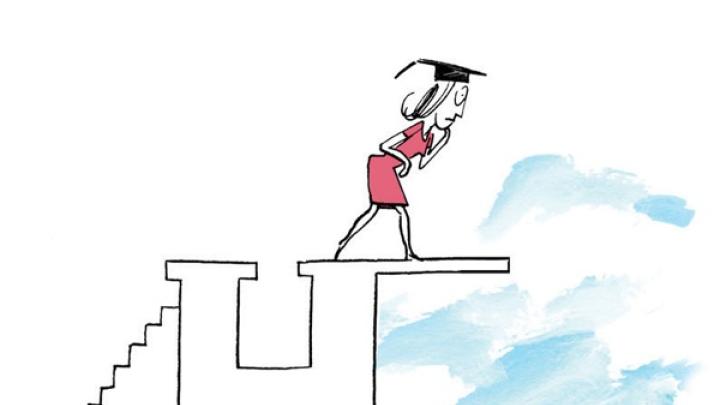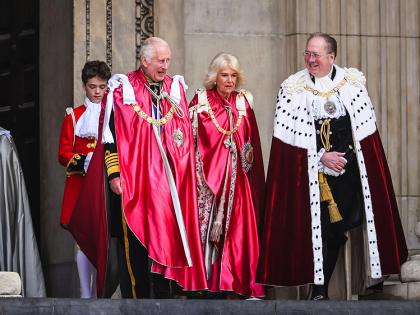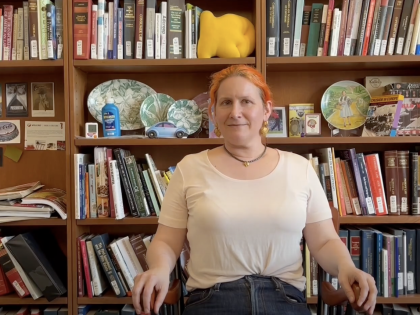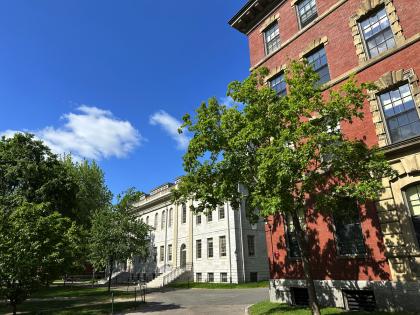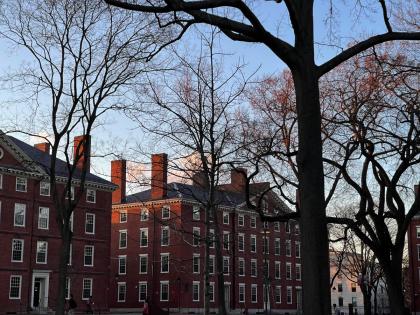One of the more challenging aspects of being a Harvard student and graduate—especially for a woman—is grappling with questions of success and failure, Lisa Myers reports. Myers, the owner of Rosie’s Yarn Cellar in Philadelphia and sole U.S. wholesale distributor of fair-trade Manos del Uruguay yarns, has felt the weight of expectations for alumni to “have big lives.” “Even if you were going to go off and devote yourself to ending world hunger, there was a sense that you were going to be a famous leader,” she says, “not someone nobody ever heard of, and certainly not someone feeding the hungry by cooking for the four people who live in your house every night.” Undergraduates internalize the expectations as the tools and resources “to make an impact” are handed over, she says. “The sense that you’re just settling down and doing nothing, which you could have done with a B.A. from anywhere, is not a good answer.”
During their recent reunion, she and classmates discussed failure at length. “The consensus was that we wished Harvard had taught us more about it—encouraged it, even, since that’s where so much growth and discovery begin,” she says. “I felt that intellectual risk-taking was the only kind that had been encouraged; a classmate thought even that was hardly supported.” For Myers, the answer came from the late Plummer professor and Pusey minister Peter J. Gomes, whom a friend quoted as saying, “Leadership is not service.” “The Harvardian imperative to ‘Give back’ has somehow been conflated with what I’ll call the ‘expectation of leadership,’” Myers says. “The result is alumni who think their role is to organize a 501(c)(3) to support research into a particular cancer, when fundraising for the American Cancer Society would be a much more efficient use of resources; and alumni who think that starting a business that employs 25 people—while paying the alumnus/a seven figures a year—constitutes ‘giving back.’”
Myers would also like to see the College foster more growth in emotional intelligence and self-awareness, although she is not sure what form this would take. “I do recall the impression that the function of College advising was to get us back to paper-writing and exam-taking, not to help us consider the meaning of our lives,” she observes. “The current wisdom about happiness—or satisfaction in life, if you prefer—is that it comes from our relationships with other people, not from what we do for a living or how much stuff we have. Could an undergraduate education be structured so as to acknowledge that?”
